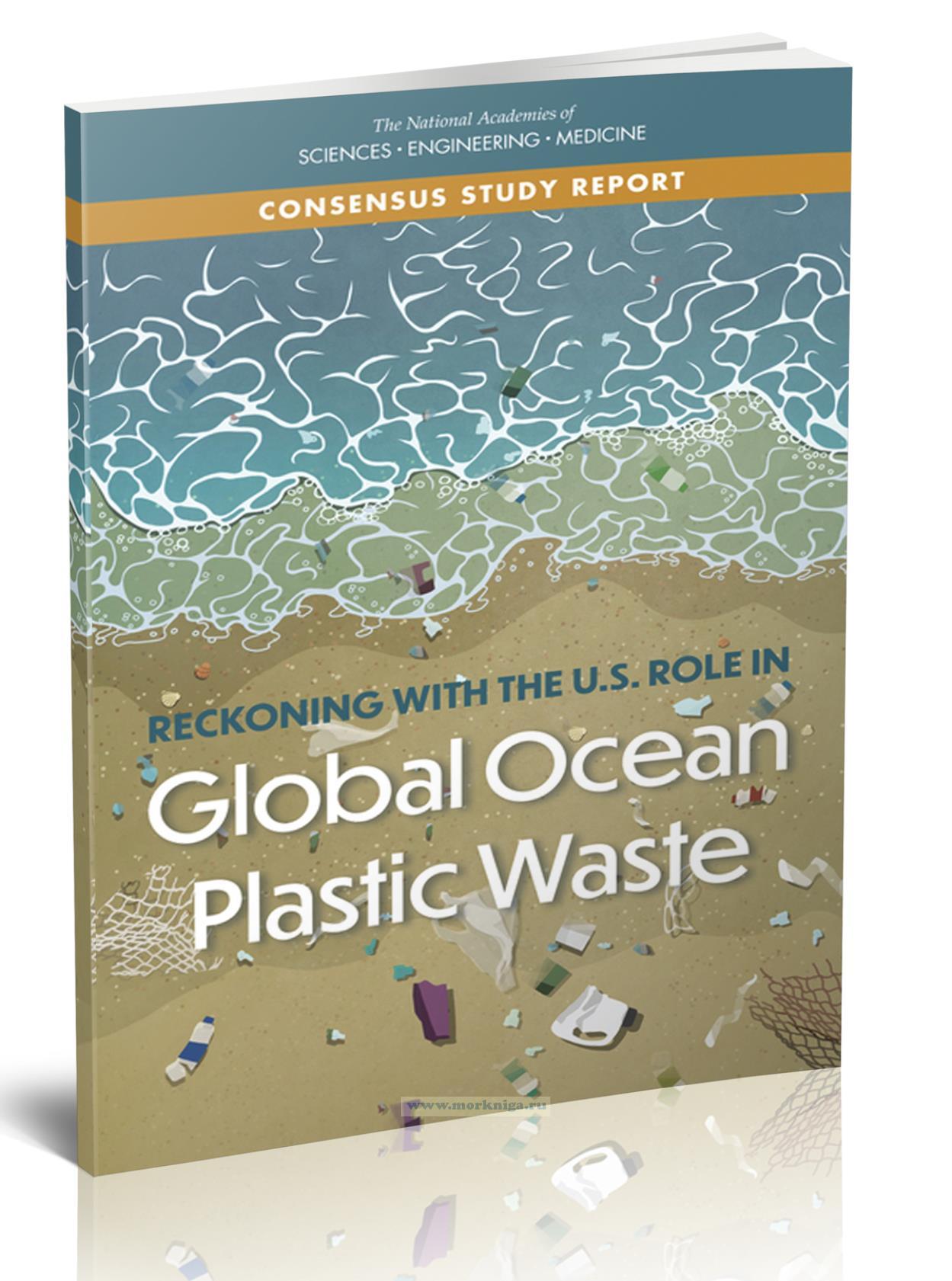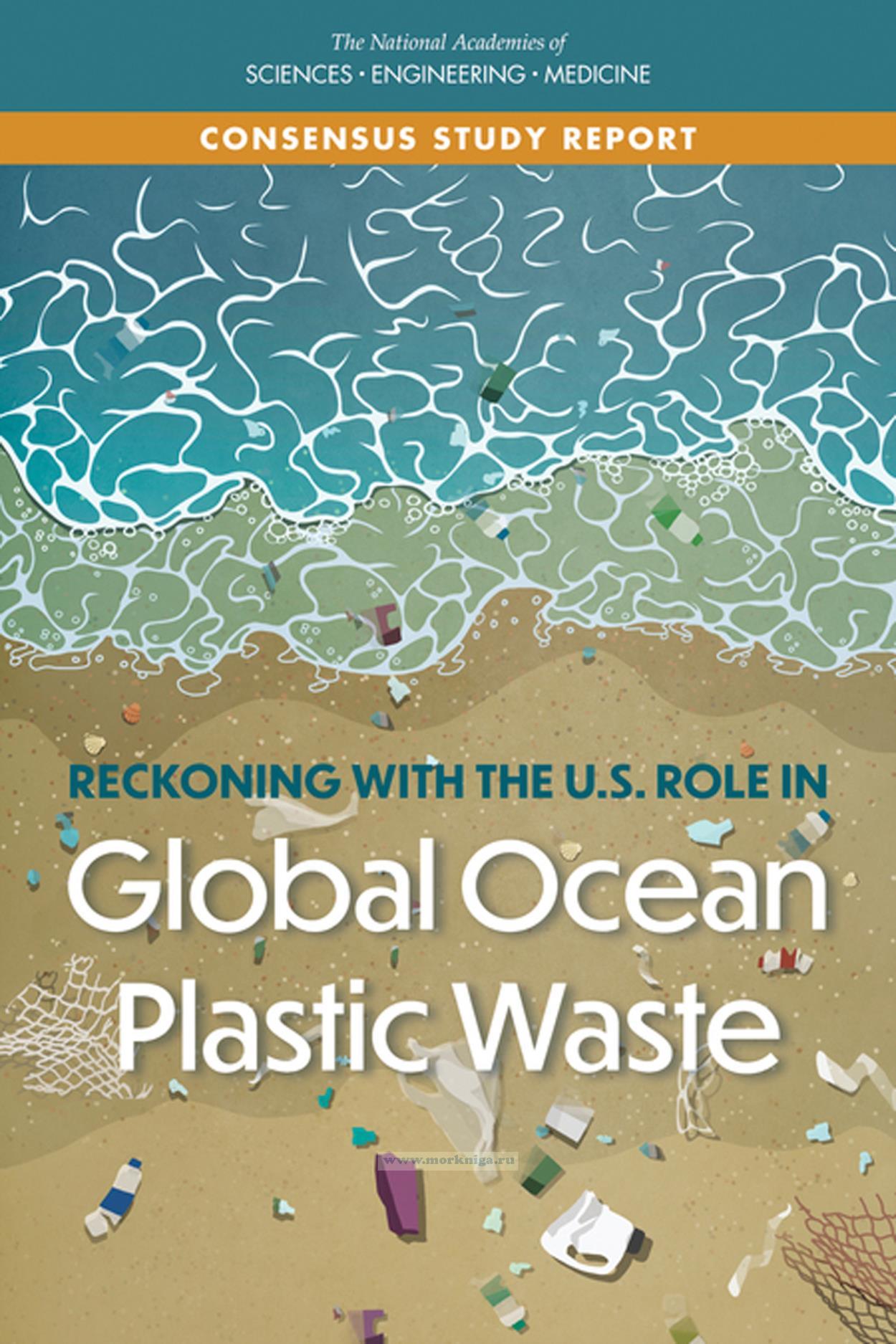Сб с 10 до 16
Reckoning with the U.S. role in Global Ocean Plastic Waste/Признавая роль США в загрязнении Мирового Океана пластиковыми отходами
Книга на английском языке
An estimated 8 million metric tons (MMT) of plastic waste enters the world's ocean each year - the equivalent of dumping a garbage truck of plastic waste into the ocean every minute. Plastic waste is now found in almost every marine habitat, from the ocean surface to deep sea sediments to the ocean's vast mid-water region, as well as the Great Lakes. This report responds to a request in the bipartisan Save Our Seas 2.0 Act for a scientific synthesis of the role of the United States both in contributing to and responding to global ocean plastic waste.
The United States is a major producer of plastics and in 2016, generated more plastic waste by weight and per capita than any other nation. Although the U.S. solid waste management system is advanced, it is not sufficient to deter leakage into the environment. Reckoning with the U.S. Role in Global Ocean Plastic Waste calls for a national strategy by the end of 2022 to reduce the nation's contribution to global ocean plastic waste at every step - from production to its entry into the environment - including by substantially reducing U.S. solid waste generation. This report also recommends a nationally-coordinated and expanded monitoring system to track plastic pollution in order to understand the scales and sources of U.S. plastic waste, set reduction and management priorities, and measure progress.
Contents
Summary
1 Introduction
Study Context
Origin of This Study
Study Scope and Approach
2 Plastic production and global trade
Properties of Plastics
Plastic Production
Plastic Trade
Chapter Synopsis
Prioritized Knowledge Gaps
Findings and Conclusion
3 Plastic waste and its management
National and Global Plastic Waste Generation
U.S. Management of Plastic Waste
U.S. Plastic Waste Leakage
Current Regulatory Framework for U.S. Management of Plastic Waste
Chapter Synopsis
Prioritized Knowledge Gaps
Findings, Conclusions, and Recommendation
4 Physical transport and pathways to the ocean
Waterborne Pathways
Airborne Pathways: Wind
Direct Input
Case Study on San Francisco Bay Area
The Challenge of Estimating Flows of Plastics Entering the Ocean
Knowledge Gaps
Findings and Conclusion
5 Distribution and fate of plastic waste in the ocean
Estimated Plastic Waste Inputs to the Environment
Environmental Reservoirs of Aquatic Plastic Waste
Transformation of Plastics in the Ocean
Chapter Synopsis
Knowledge Gaps
Findings and Conclusion
6 Tracking and monitoring systems for ocean plastic waste
Existing Tracking and Monitoring Strategies and Programs
Considerations, Enhancements, and Opportunities for Tracking and Monitoring in the United States
Potential Value of a National Marine Debris Tracking and Monitoring System
Knowledge Gaps
Findings and Recommendations
7 Interventions for U.S. contributions to global ocean plastic waste
Key Frameworks and Implementation
Strategies from Other Countries/Regions
A U.S. Approach on Plastics
References
Appendixes
A Biographies of the Committee on the United States Contributions to Global Ocean Plastic Waste
В Definitions and Acronyms
C Legal Framework
D Estuary Table
E Global Instruments and Activities Relevant to Ocean Plastic Pollution

